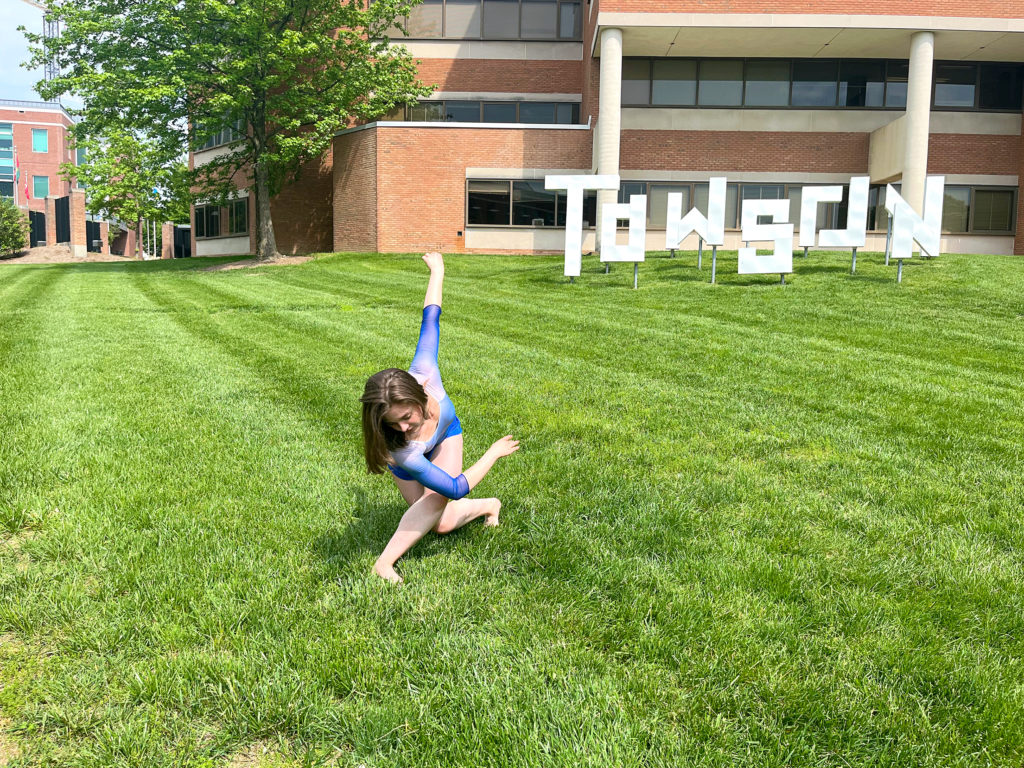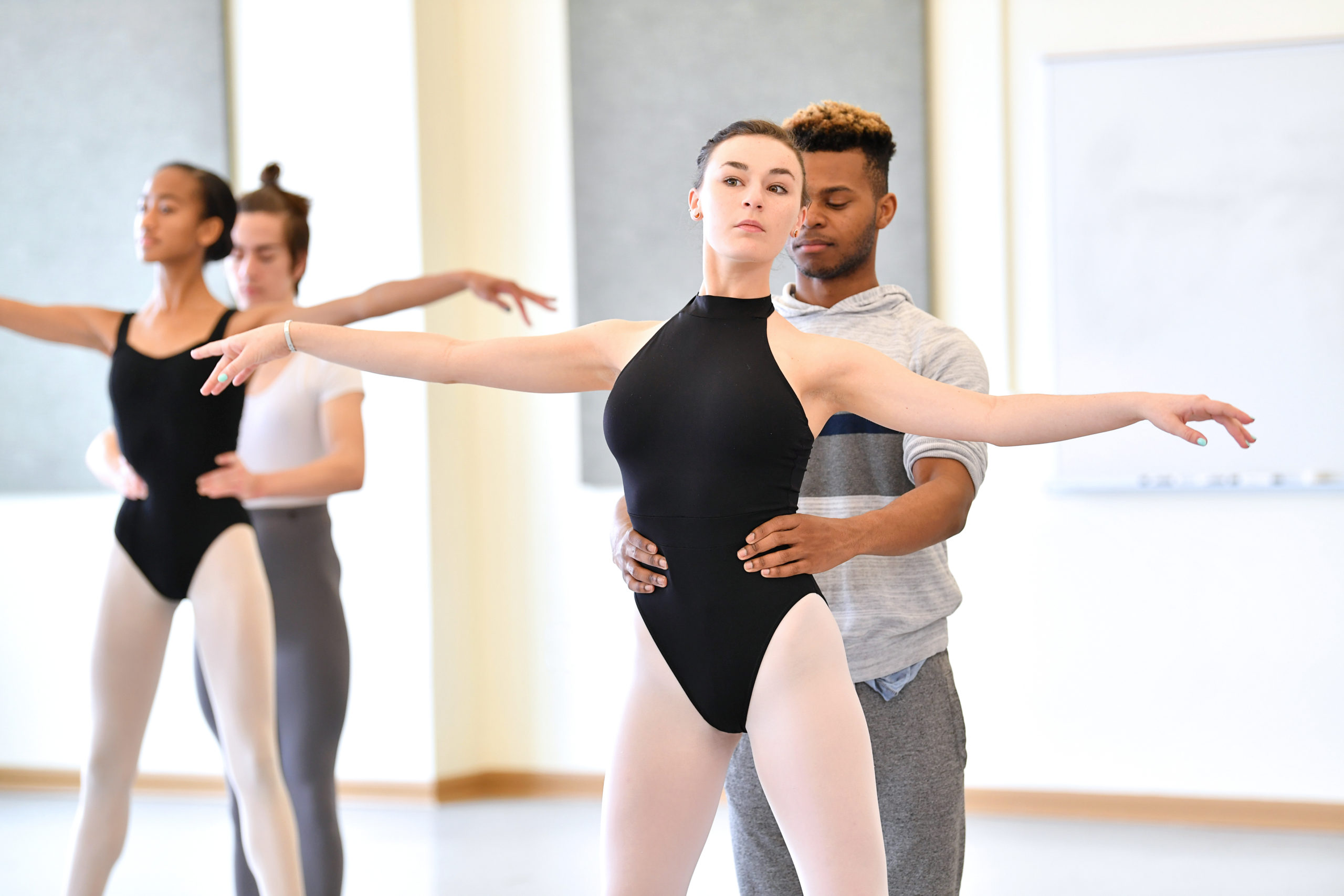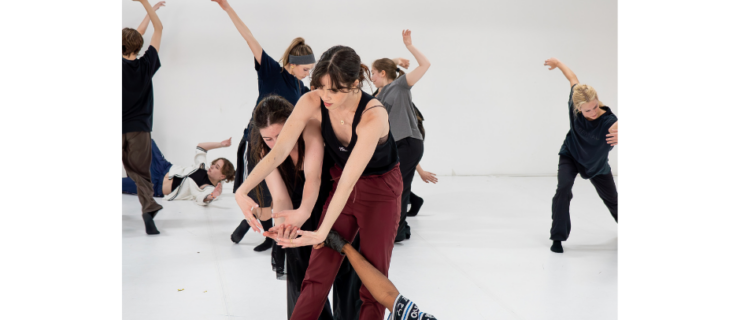5 Soft Skills Dance Majors Learn
In the 1970s, when Susan Mann told her parents she wanted to drop out of college as an engineering major and join a ballet company, the news was not well received. “My parents were so upset with me, they didn’t talk with me for two years after I joined the company,” says Mann, now a professor of dance at Towson University. Even though many parents continue to believe life as a dancer will not provide a sustainable income, and that majoring in dance is a waste of the investment in college, Mann still believes in the value of a dance degree: “It’s a very demanding degree and it qualifies you for the professional world just as well as any other,” she says. Dancers learn a multitude of professional and life skills when in school—skills that will help them succeed in any career path they choose.
Find Maturity and Confidence
Not every high school graduate is ready to go straight into dancing professionally at 18, which makes college the natural next step for those looking to discover who they are in a safe environment. “This extra time in college and maturing has really strengthened me as a person,” says Bethany Armistead, a senior dance major at Towson University. “I feel so much more ready to go into the professional world and to be able to stand my ground on things that are important to me.”
Learn to Work With Others
No matter what career path dancer majors end up pursuing, the collaborative and interdisciplinary opportunities presented by projects, classes and extracurricular activities teach them to work well with others postgraduation. “Learning how to be creative and vulnerable in an interdisciplinary environment is critical for anyone,” says Mann.
Accept Constructive Criticism
Feedback is an unavoidable aspect of any job, and dancers are experts at accepting corrections and criticism. “Dancers are so used to applying corrections and making improvements on the spot,” says Jin Lee Hanley, chair of the dance department at Palm Beach Atlantic University. “This is applied in life, and it is really rewarding to see.”

Develop Leadership Skills
Choreographing in college has helped Armistead build a network and grow her organizational and leadership skills. “Even if you’re going outside the realm of dance, there’s so many skills, like networking, leadership and confidence, that I found in my own journey as a dance major that will carry into any other profession,” she says.
Proudly Present Yourself
“When you study dance, you also learn about how to present yourself in public, and it’s a very important skill,” Mann says. College helps students confidently demonstrate their skills physically, orally and in writing. Both Mann and Hanley require oral presentations for certain courses to teach dancers how to verbalize their ideas—not just dance them.
Defending Your Dance Major
Susan Mann, professor of dance at Towson University, has had many dancers come into her office and say their parents want them to double-major because being a dance major isn’t enough. But she encourages students to use their time in college to pursue their passions and turn them into a career. “This is the beginning of their dream, and I always advise them to follow their dreams,” she says.
At Palm Beach Atlantic University, dance department chair Jin Lee Hanley encourages students to use the presentation skills they have learned through studying dance to inspire others to see the benefits of a dance major. “All the things that you have learned, share and verbalize with your parents,” she says. “And you have to believe in yourself. You have to believe in dance first.”
A Versatile Foundation
A dance major is about much more than just technique and choreography. Coming into college, performing may be your number-one passion, but there are many routes to discover that you might not expect. Because of the versatile skill set dancers have, they can become fitness instructors, studio owners, company founders, dance psychologists, physical therapists—other dance majors have gone into medicine, business and finance. “Open yourself up to as many opportunities as you can and see where you end up at the end of four years, because it could be somewhere very different from where you start,” advises Bethany Armistead, a senior in dance at Towson University.






